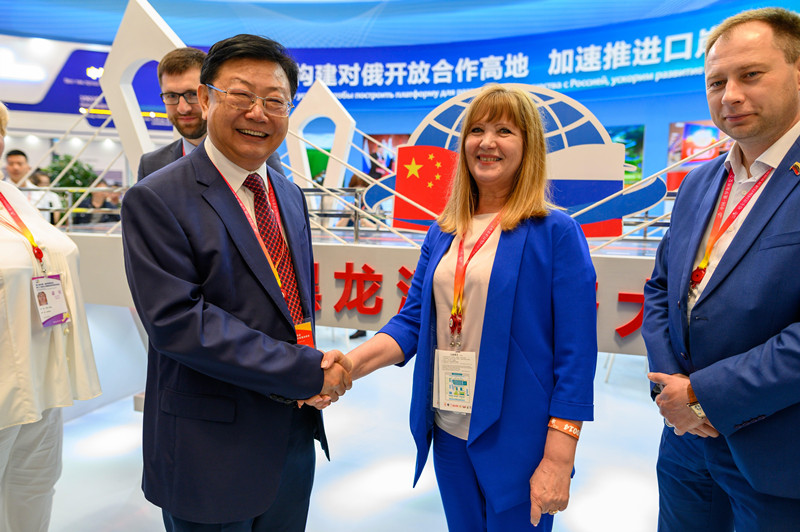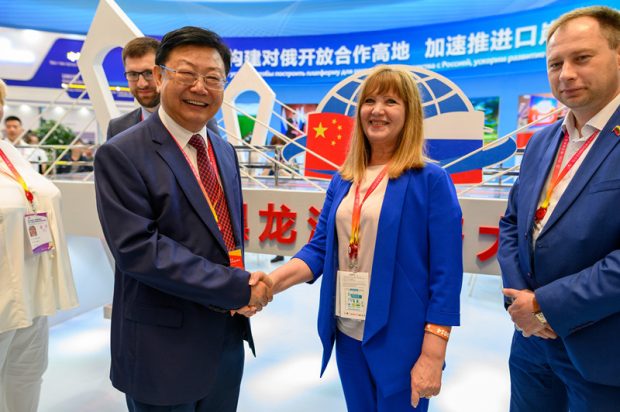
China-Russia economic, trade index reflects stronger bilateral relationship

The first China-Russia (Harbin) economic and trade index was released on June 16 in Harbin, capital of Northeast China’s Heilongjiang Province, according to the Xinhua News Agency. The index is composed of both the national trade index and the regional trade index, including China’s trade with Russia, exports and imports with Russia, trade in specific industrial lines, the compatibility of trade and the influence of the city of Harbin on surrounding areas.
Trade relations between China and Russia have strengthened in recent years. In 2018, the import index from Russia increased 127.93 percent compared with 2010. Li Chunding, an assistant researcher at the Chinese Academy of Social Sciences (CASS), told the Global Times that the index reflects the increasingly close strategic partnership. “Traditionally the top three trading partners of China have been the US, the EU and ASEAN countries, but now Russia is playing an increasingly important role,” Li said.
Free trade area agreements and the compatibility of trade in Russia and China are behind this trend, Li said. In 2016, a free trade zone between China and Russia was established in Harbin to inspire more trade and communication. “But deep down it’s because Russia and China are compatible in their import and export structures,” Li said. “Russia is benefiting from cheap and good-quality daily necessities, and China is securing its energy from imports of gas and crude oil from Russia.” Light industrial products are the main exports from China to Russia, while most imports from Russia are raw materials including fuel and timber, according to a report by hljnews.cn. The index was designed and developed by scholars from institutions including the CASS, Renmin University of China and the University of International Business and Economics under the organization of the China Economic Information Service, according to Xinhua.
(Global Times)


